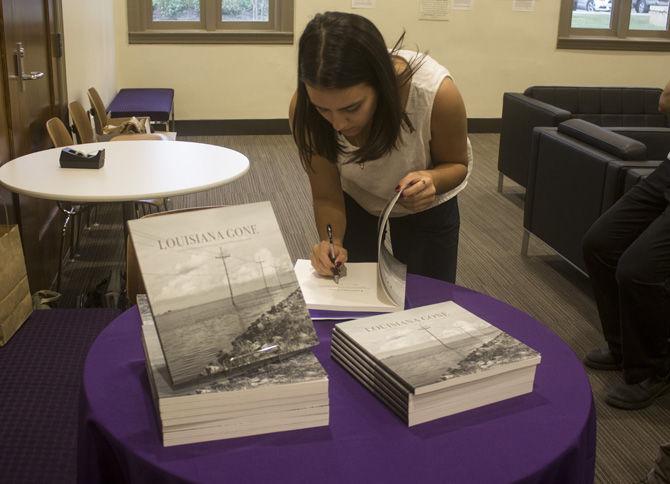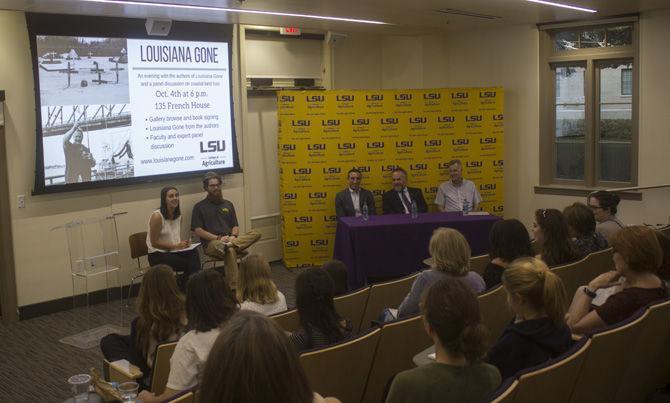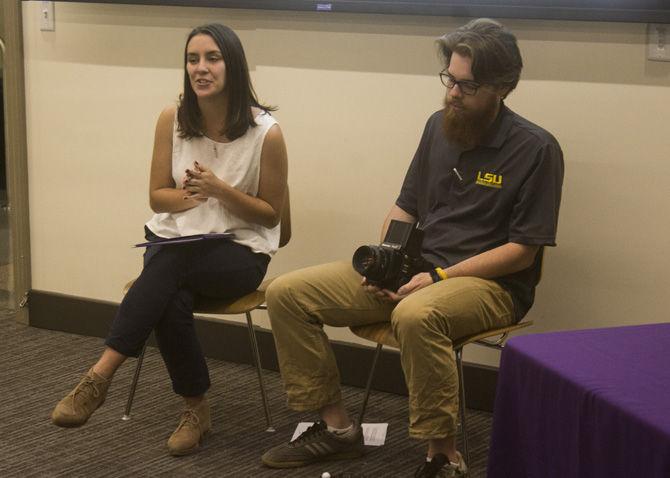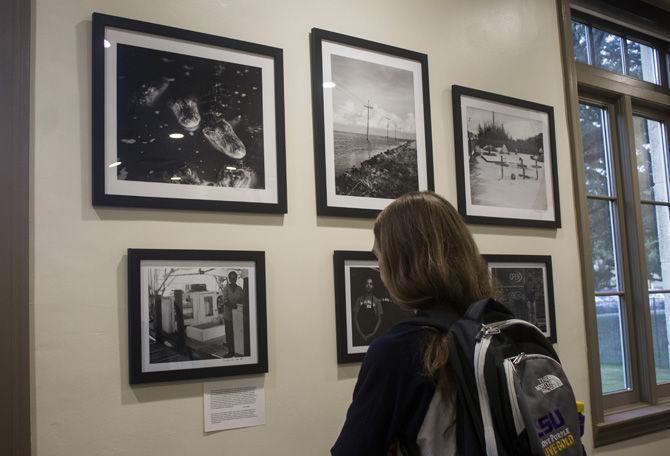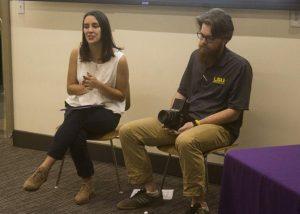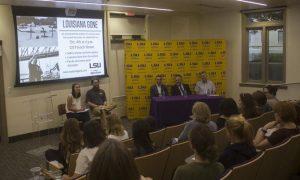Two University students are attempting to discuss the issue of Louisiana’s coastal land loss after self-publishing Louisiana Gone,” a book highlighting communities affected by the rapid coastal land loss in the state.
On Wednesday, the LSU French House hosted a book-signing and panel discussion for the book.
Natural resource ecology and management junior Madelyn Smith and mechanical engineering senior Trent Andrus self-published the black and white photography book, “Louisiana Gone” last spring. The two traveled the state listening to stories of those impacted by coastal erosion.
“We picked some places that were not directly affected at this moment by land loss and erosion,” Andrus said. “For instance, Houma is not directly affected right now, but you go just slightly south to Dulac, [Louisiana] and [Bayou] Dularge [Louisiana], and a lot of those places have a road that is almost gone. It’s a very short drive, but interesting context to see the juxtaposition of areas that are very heavily affected by land loss and places that aren’t at all. So part of it was trying to document what we have right now and what we stand to lose, and also places like Grand Isle, who are making efforts.”
The goal was to highlight the unique cultural traditions of southern Louisiana threatened by coastal land loss, and to start a conversation about the issue. Smith views “Louisiana Gone” as a way to investigate the intersection of her interest in art and science.
“It was about getting out there and learning about our own home state and seeing what’s there first hand,” Smith said.
Panelists at the book signing event included Bentley, as well as associate professor of religious studies and history Michael Pasquier and School of Renewable Natural Resources professor John Andrew Nyman.
“These places are small communities that are tight-knit, and technological advancement isn’t something that’s on the forefront for them,” Andrus said. “They love the land and they’re very knowledgeable about it. I think that’s a big misconception about the people in these areas, [that they] are oblivious to what’s going on.”
About 1/14 of the world lives on a coastal river delta that has been threatened by catastrophic coastal land loss, Bentley said. He said about one football field of land in Louisiana is lost every hour.
“There’s people half my age that remember running across cow pastures that are now open water,” Bentley said.
Smith received a grant as part of the Roger Hadfield Ogden Honors Leaders Award to complete the book.
“The reason we did this project is that coastal land loss in Louisiana is a thing that’s happening, and it’s happening fast,” Smith said.



